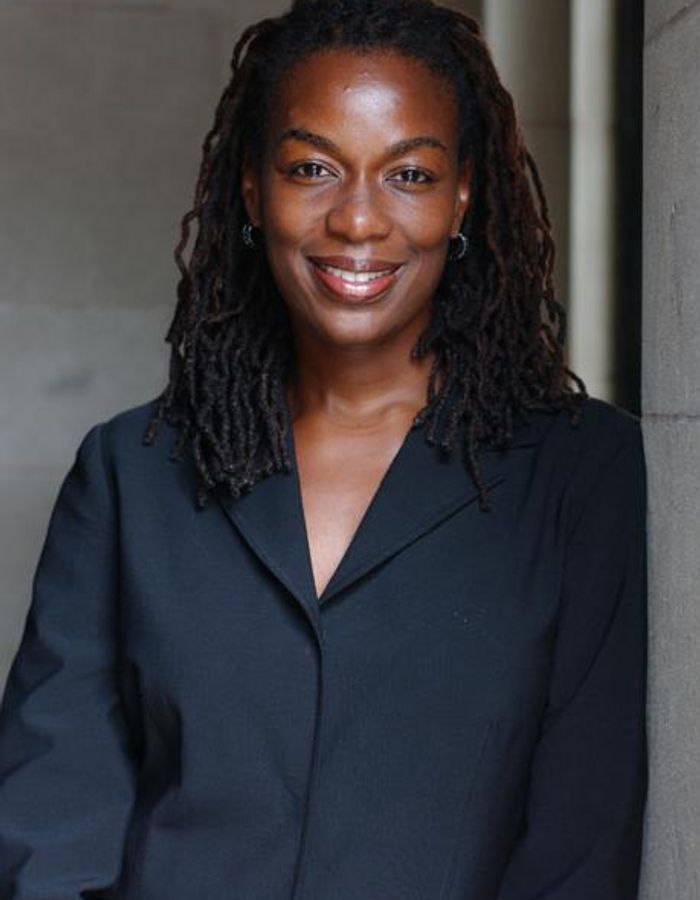Vaccine hesitancy - supporting communities experiencing racial inequality

We’re more than 18 months in the pandemic and we’re still seeing misinformation spreading online. Black, Asian and Minority Ethnic (BAME) communities have been disproportionately impacted by COVID-19. Mistrust created by historical racism and health care inequalities has given space to the rise of misinformation and disinformation.
As misinformation is still spreading, it’s important to understand and support community and faith leaders in their vital work to boost vaccine trust among their communities in the next stage of the pandemic.
We are committed to digital equity and improving the digital skills and competence of community members so we wanted to explore the different ways we can support them.
We commissioned ClearView Research to conduct a qualitative study with black and mixed-black faith and community leaders from across the UK to understand the challenges they have faced during COVID-19, how their communities have managed to navigate the information landscape during this time, and their community members’ response to the COVID-19 vaccine.
Here is an overview of the findings and our next steps towards supporting them. You can also find the full report here.
Physical challenges and limited access to technology during COVID-19
The participating community and faith leaders discussed the physical challenges of not being able to reach their community members in person, which made it harder for them to combat the rise of misinformation during COVID-19.
Moreover, they focused on the challenges of those having limited access to technology and how they went beyond the way to support their community members to access online worship and community services. The rise of digital inequalities is of growing concern and it highlights the need to support the communities as much as possible.
Overall, the participating faith and community leaders expressed their determination to continue supporting their communities despite the ongoing challenges during the pandemic.
The link between trust and vaccine hesitancy
Participants were asked questions around trust and transparency both for the motives of those in power but also the competence of those developing the vaccine and other COVID-19 public health measures.
The government often received the lowest score for trust and transparency with an average score of 3 out of 10 while the community and faith leaders received the highest score of trust with an average of 7 out of 10.
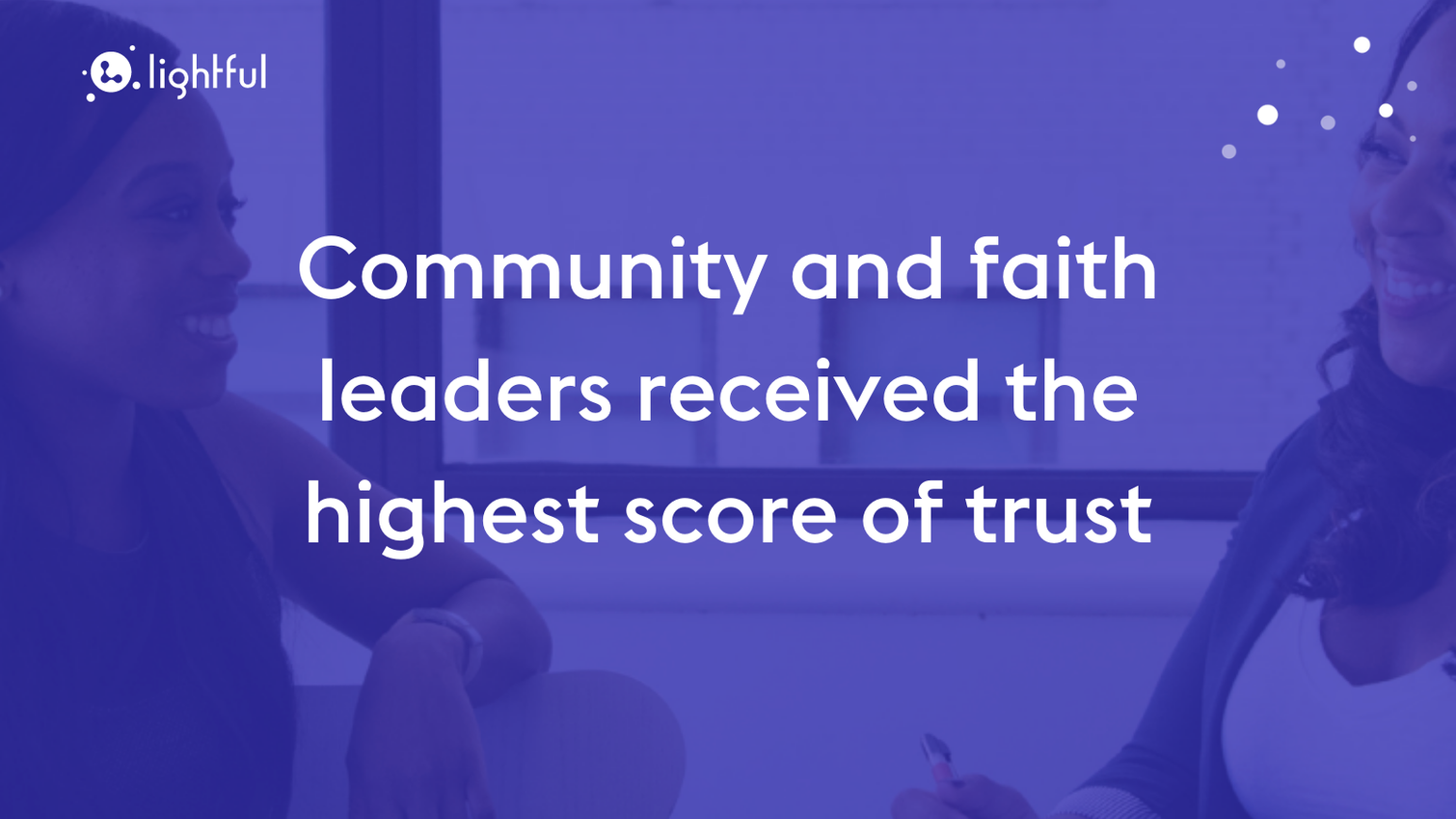
This contrast in the levels of trust highlights the need to connect with community and faith leaders to support community groups as they are the best to know their needs and communicate change.
In terms of the trust of those who have developed the vaccine, there may be higher levels of trust but there are still concerns among the community members that are linked to the role of misinformation.
Some of them seemed to be hesitant about the lack of information or even the lack of confidence of where to access credible information.
This highlights the importance of supporting faith and community leaders to boost their members’ confidence and awareness so that they access accurate information from credible sources.
Digital skills and engagement and the impact of COVID-19
There were many interesting findings around digital skills and engagement and how they have been affected by the pandemic.
According to the participants, there are three main challenges around digital technologies among their communities:
- Safety concerns
- Limited technology access for many
- Lack of digital skills
Not everyone is comfortable being online while there are privacy concerns linked to GDPR, consent, and the use of data. The lack of training on how to handle online recordings or how to protect their community’s online safety is a concern among leaders.
Moreover, there is an additional challenge with those who are now familiar with online activities and may have a hard time re-engage to in-person events. According to participants, many of them are developing long-term online activities to reach them while they acknowledge that social interaction can become more difficult.
Digital poverty is highlighting the contrast in the access to tools and skills that will make the ‘new normal’ easier for everyone. In fact, there are concerns that those who already suffer from mental health issues can feel even more marginalised with inadequate access to technology.
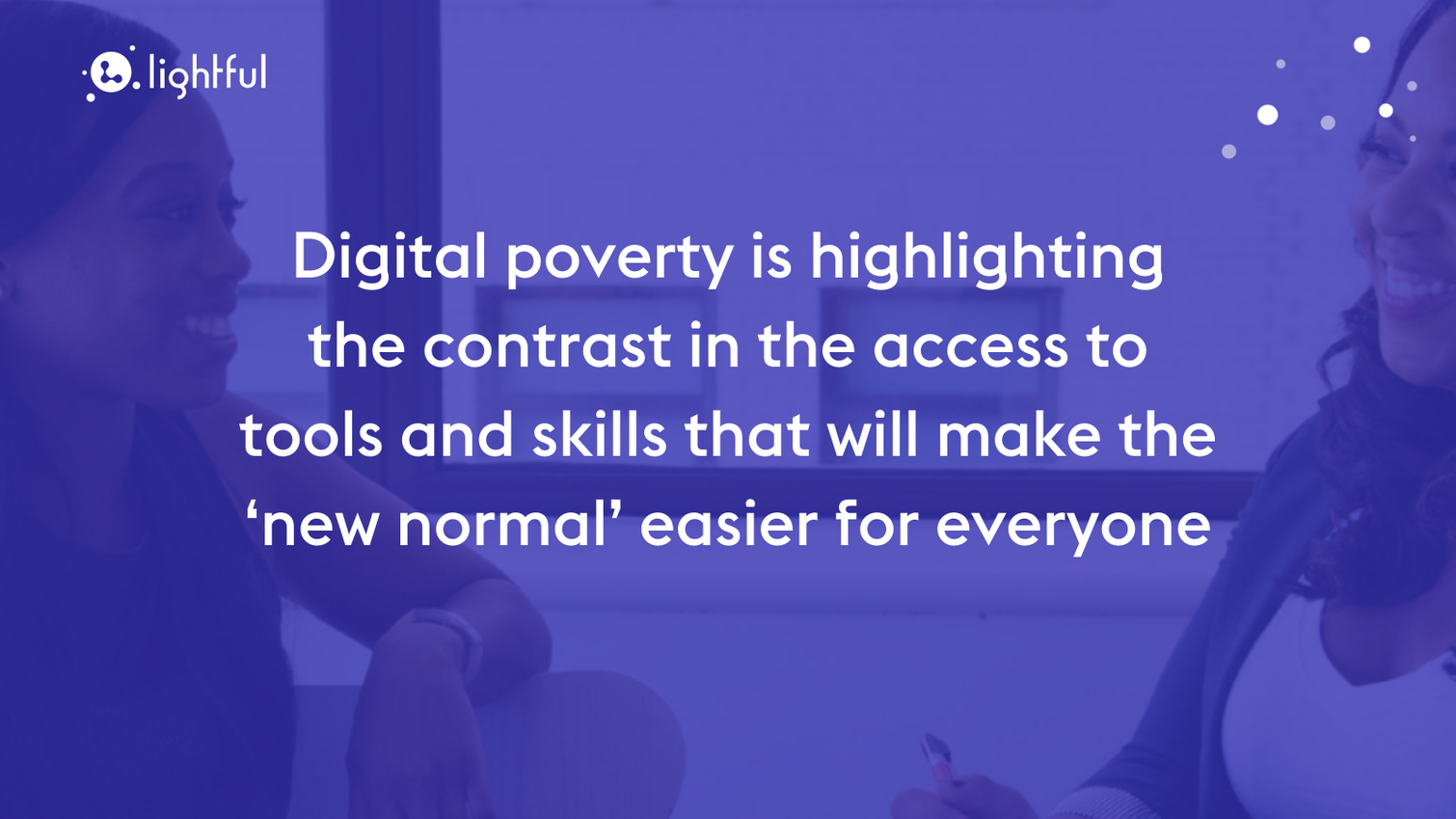
All faith and community leaders seem to be aware of the popular online video conferencing tools such as Teams and Zoom, while many of them have trained their community members.
When it comes to the most popular modes of online communication, email, Facebook, and WhatsApp seem to be on the lead.
Moreover, they are using social media channels such as Facebook and YouTube to share content with their community members along with focusing on hope and connection. Smartphones seem to make engagement higher on social media among community members, which is useful for faith and community leaders when trying to reach them.
Fears and concerns make online engagement more challenging
There is a reluctance among several community members to be online or use social media mainly due to the fear and the lack of knowledge.
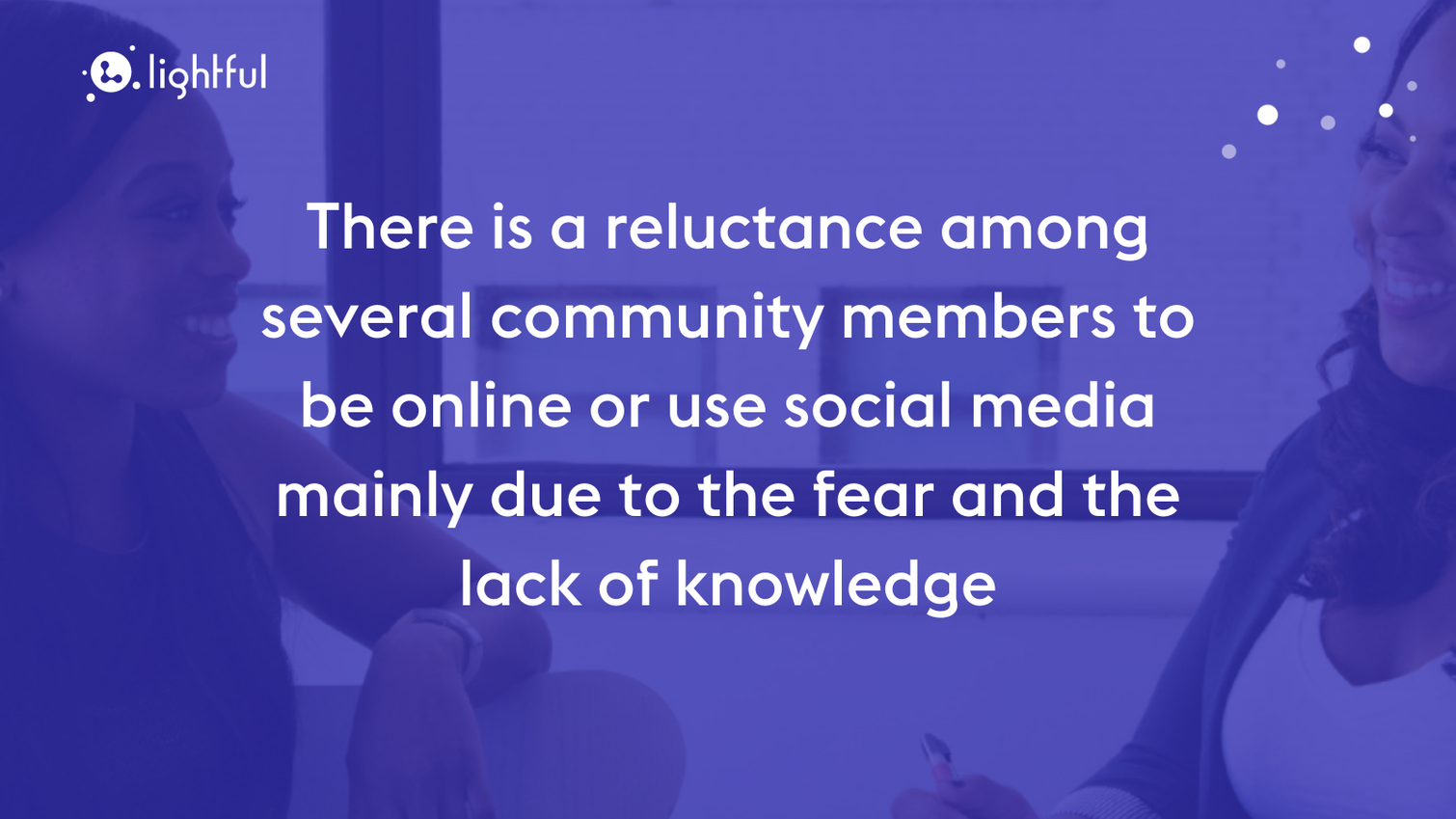
Community members aged over 55 seem to be more hesitant over online access, which makes it more challenging for faith and community leaders to reach them when it’s not possible in person. Using a smartphone seems to be easier than using a computer, which proves the increased engagement on channels such as WhatsApp.
It’s interesting to see that some of them have decided to join social media during the pandemic because they were feeling lonely so they found a new way to stay connected with their communities.
Many community members seem to worry about safety, potential fraud, and misinformation online. They are not sure of the intentions of those who run the services online or how to access credible information, which makes them hesitant to be online.
In fact, the rise of misinformation and the importance of fact-checking is still a work in progress for faith and community leaders who try to use multiple sources but may still rely on social media or a set number of resources to validate a claim.
Despite the good intentions, there is a need for support to help them feel more confident online to communicate their skills with their community members.
The need for training and support - launching our new BRIDGE cohort
We commissioned ClearView Research to conduct this study to explore how we can support faith and community leaders in their vital work for their communities.
As we are heading towards a more digital-first world, it’s important to provide them with the skills and support to communicate the change to the community members while maintaining a high level of trust.
We are happy to launch our first Vaccine Trust building BRIDGE programme in partnership with Newham Council to build trust in vaccines through more effective digital communication.
The Digital Community Champions - Vaccine Trust Building BRIDGE Programme, which stands for Building Resilience in Digital Growth and Engagement, is a dynamic and community-led programme that combines digital skills, support, and training over 6 months to respond to emergencies.
We want to equip participants with the digital skills, tools, and support to communicate effectively with their online communities.
Through a range of delivery methods, participants will learn how to be more strategic with their digital presence while developing the skills to execute effective online campaigns.
The ultimate goal is to help them build back the trust and reassurance needed in vaccines through a series of courses on fact-checking, digital communications, and storytelling.
What’s clear from the study is that community and faith leaders have worked very hard during the pandemic to support their communities and it’s time to give them back the support, confidence, and skills to continue engaging their members effectively as they help everyone get ‘informed consent’.
We’re excited about this journey and we’ll be sharing more insights throughout the programme.

For more details, you can read the full report here.
Latest articles

In a world of growing uncertainty, small and local non-profit organisations often find themselves with competing priorities and struggle to plan how to allocate their available resources. Despite the increasing demand for their vital work, they are not always able to allocate the funds they receive to strategic planning and future growth.

As the world becomes more digitally-focused, it’s essential for nonprofits to have a digital presence. With more and more options for online engagement, we know that this can be challenging for nonprofits to tackle. But, we also know that it is a huge opportunity to increase audience engagement, awareness and fundraising. To help nonprofits navigate this, we’re going to explore the “whys” and “hows” of creating a nonprofit digital strategy. We’re even providing a free digital strategy canvas to help nonprofits improve their online presence in just a few steps.
Related posts
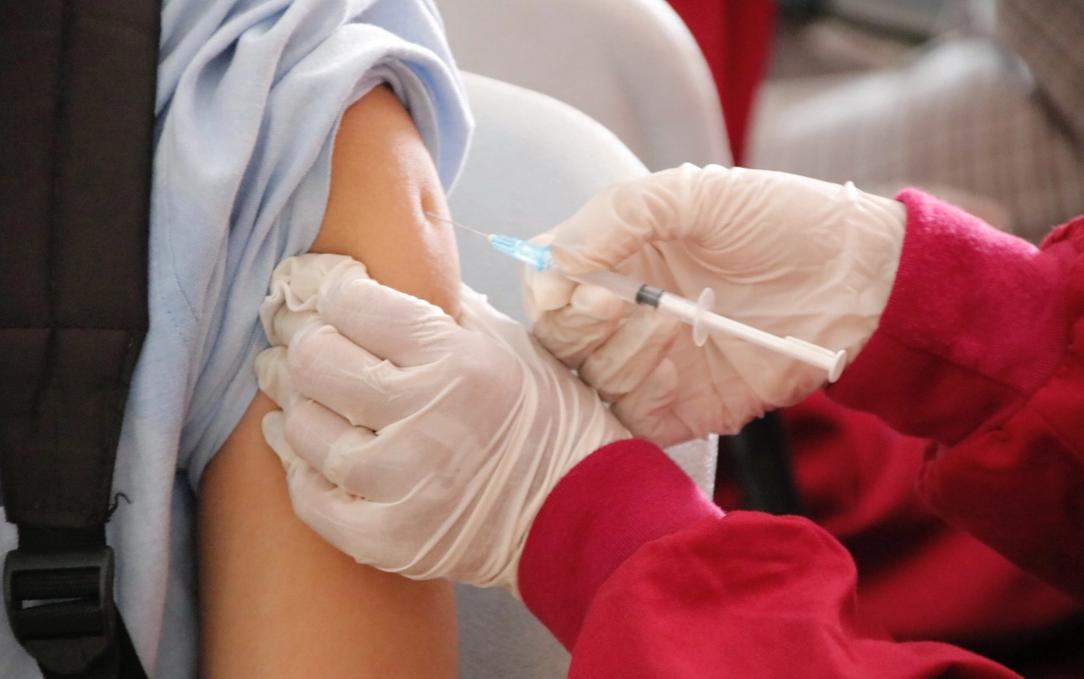
Despite the promising news of vaccines rolling out to combat COVID-19, mistrust and discord challenge their adoption. Concerns have been raised about the take-up of the Covid vaccine among Black, Asian and Minority Ethnic (BAME) communities that have been disproportionately impacted by the pandemic.
See who we help
Contact us
Want to learn more?
Email Jonathan and start a conversation





